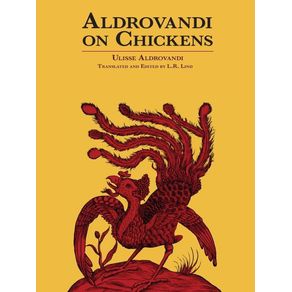Aldrovandi on ChickensThe Renaissance man of science, unlike the physicist of today, conceived the value of his work to lie in its applicability to all phases of human activity. Aldrovandi on Chickens, the first English translation of any work by the Italian naturalist, Ulisse Aldrovandi, exemplifies the spirit and the letter of Renaissance science-the former, in the extensive classical references; the latter, through careful examination of every process concerned with the raising or use of chickens.Writing in 1598, Aldrovandi discusses as common knowledge such twentieth-century concepts as artificial stimulation of egg production, culling, and flock behavior. He traces reproduction in great detail from the competition of sperm in the oviduct to the position of the developed chick.Aldrovandi directs himself particularly to the chickens beneficial effects on human life. He lists remedies concocted from chickens for many diseases, and although the modern reader may find the cure worse than the curse, the prescriptions provide a fascinating glimpse of the medical practices of the time. Recipes from gourmets of every age tempt the palate. Aside from these physical blessings, Aldrovandi suggests, the chicken family is an admirable example of unity for the human family-provided the roosters extraordinary lustfulness is not emulated.As Alessandro Ghigi, the well-known Italian zoologist, points out in his preface to this translation, Aldrovandi on Chickens contributes substantially to the history of science and the study of ornithology. The authors genius and unique style make the book an important representative of one of the golden ages of the intellect.L.R. Lind, past chairman of the Department of Classics at the University of Kansas, has published translations of many works, including Virgils Aeneid, along with several books of his own.

